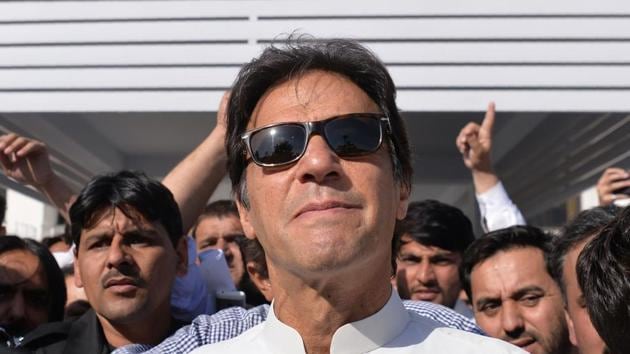For Imran Khan, the real battle against Nawaz Sharif lies in the villages and towns of Punjab
As Pakistan heads for its next general election, Khan’s strengths are obvious. For his followers, he retains the aura of the cricket captain and represents the principle of merit and performance
Imran Khan’s career since the time he was a teenager in the Pakistan cricket team is the stuff that makes biographers drool. He first played for Pakistan in 1971 and his image acquired a larger-than-life character when he famously came out of retirement in 1988 at General Zia-ul-Haq’s request. His team went on to win the World Cup in 1992. Thereafter, he remained in public life but in another incarnation — as a sports icon with a social conscience as he raised funds for a cancer hospital in his mother’s name. The Shaukat Khanum Memorial Cancer Hospital & Research Centre remains a rare example in South Asia of how individual popularity and philanthropy can come together for public good.

From these two platforms — cricket and social service — the transition to politics was natural and the formation of the Tehreek-e-Insaf in 1996 saw the beginnings of Khan’s political career. In the last two decades, both his personal life and his politics have acquired a legendary quality. His first marriage to a British heiress and socialite in 1995 lasted about nine years, his second in 2015 to a British Pakistani journalist about nine months. Despite these travails, the fact his first wife was Jewish and the second a working woman cemented in many the impression that he is someone who is fundamentally liberal. The third marriage early this year was to his spiritual adviser.
His politics has been equally eventful: he initially supported General Pervez Musharraf’s coup but by the end of that dictator’s tenure, he became an opponent. The tenure of the Pakistan People’s Party government from 2008 and that of the Pakistan Muslim League from 2013, however, revealed a side of Khan that has since become his trademark: the capacity to mobilise large numbers of supporters in Pakistan’s principal cities. This led to his famous agitation in the heart of Islamabad from August to December 2014 that fatally weakened Nawaz Sharif’s government and tilted the scales in favour of Pakistan’s military.
The end of the dharna coincided with Khan’s second marriage and he announced his intention to marry during one of his daily evening speeches that had become a ritual during the agitation. The coincidence underlined how much his personal life and his politics are part of Pakistan’s public space. The interest in his personal life suits Khan as it’s a contrast with Pakistan’s lethargic feudals who have hitherto dominated its civilian politics. Sharif has commented, only half in jest, that Khan is older than him.
His political beliefs are a curious amalgam of ending all that is believed to be wrong in Pakistan: from corruption to the intervention of external powers (read the US). His eclectic beliefs have drawn supporters as far apart as liberals to those in the religious right and supporters of the Taliban.
As Pakistan heads for its next general election, Khan’s strengths are obvious. For his followers, he retains the aura of the cricket captain and represents the principles of merit and performance. This is at the core of his personal charisma and the sheer amount of time he has been in the public eye means that it is natural that there is the argument that he too should be given a chance. For his detractors, his politics represents that part of Pakistan that lacks scruples and will go to any length to attain his personal goals. For the analytically inclined, he is an instrument for Pakistan’s military to keep in check Sharif in his efforts to see that his party forms the government again.
For a charismatic political figure who leads from the front, it is inevitable that Imran’s personal and political life will be inseparable as far as public scrutiny is concerned. His second wife’s account of the short marriage is a handy weapon for his opponents who have been at the receiving end of Khan’s allegations and smear campaigns.
Iftikar Chaudhury, the former chief justice of Pakistan and the cause of General Musharraf’s downfall, has claimed that Khan has suppressed the fact that he has an illegitimate daughter. Whether all this translates into more than mild embarrassment is difficult to say. The real battle lies ahead in the villages and towns of Punjab against Sharif who has a different kind of charisma and one that has been reinforced by a track record as a prime minister who does easily not take orders from the military.
TCA Raghavan is a former high commissioner to Pakistan
The views expressed are personal






